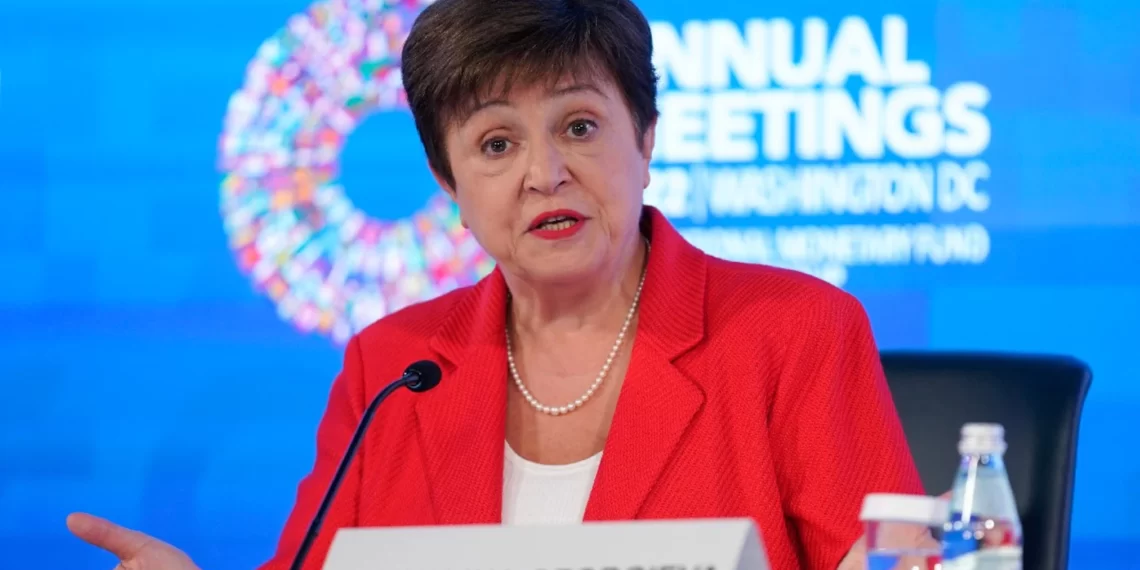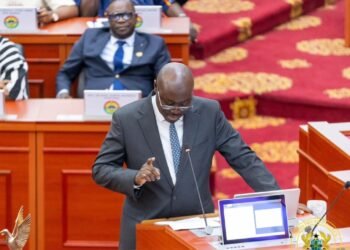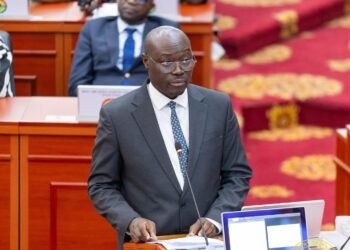Ghana’s bailout program, which has been in the works for some time now, may soon receive the approval of the Executive Board of the International Monetary Fund (IMF).
According to the Managing Director of the IMF, Kristalina Georgieva, creditors have been meeting to agree on financing assurances for Ghana, and this is the last action required before the board considers the program.
Speaking at the sidelines of the ongoing IMF/World Bank Spring Meetings in Washington, Georgieva expressed optimism that progress on Ghana’s bailout request is moving swiftly.
Ghana, like many other countries around the world, has been hit hard by the Covid-19 pandemic. The West African nation is facing its worst economic crisis in decades, and the IMF has been pushing for bilateral creditors to accelerate creditor talks to help Ghana restore its economy.
The bailout program, if approved, will provide much-needed support to Ghana’s struggling economy.
China, which is Ghana’s biggest bilateral lender, reportedly agreed to drop its demand for multilateral development banks, including the IMF and World Bank, to share losses alongside other creditors in sovereign debt restructurings.
This agreement has made it possible for a deal to be expected in early May. The move by China is significant as it shows the country’s willingness to work with other creditors to provide support to Ghana during these difficult times.

IMF Projects Ghana’s Fiscal Deficit To End 2023 At 7.3% Of GDP
Meanwhile, the International Monetary Fund is projecting a marginal reduction in Ghana’s fiscal deficit to Gross Domestic Product (GDP) of 7.3% in 2023, from the 9.9% recorded in 2022.
This is coming despite a significant cut in government expenditure and expected improvement in revenue.
According to its April 2023 Fiscal Monitor Report, the fiscal deficit will however increase to 8.4% of GDP in 2024.
This indicates that the country’s fiscal economy will still experience financing challenges.
The fiscal deficit to GDP will then lower to 7.3% in 2025. It will subsequently go down to 5.9%, 5.3% and 5.4% of GDP in 2026, 2027 and 2028 respectively.
Based on the figures, the country’s fiscal deficit to GDP would remain the highest in Sub-Sahara Africa. Zambia follows closely with a fiscal deficit of 9.1% of GDP in 2022.
Ghana’s primary balance will however end this year with a surplus of 0.1% to GDP, from a deficit of 2.8% in 2022.
This is a result of an anticipated strong revenue growth in 2023.
It will then inch up to 0.6% in 2024 and subsequently expand to 1.0% of GDP consistently from 2025 to 2028.
Meanwhile, the Director of Fiscal Affairs at the IMF, Vitor Gaspar, has advised the Government of Ghana to ensure that fiscal policy is consistent with monetary policy to restore price and financial stability, while supporting the most vulnerable.

“Abrupt changes in financial conditions also call for fiscal restraint to tackle fiscal vulnerabilities. To that end, governments will need to give greater priority to rebuilding fiscal buffers by developing credible risk-based fiscal frameworks that promote.”
Mr. Vitor Gasper
Read also: MasterCard to Ditch PVC Cards By 2028























